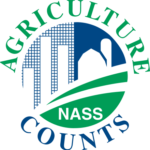 In May, the European Commission adopted two new strategies as part of the European Green Deal that proposes ambitious actions and commitments to reduce biodiversity loss and transform the food system to improve human health, planetary sustainability, and the food supply chain. The food system strategy is called Farm to Fork (F2F), and specifically calls out algae as part of the solution to reduce greenhouse gas emissions and improve food sustainability. The strategy document can be found here.
In May, the European Commission adopted two new strategies as part of the European Green Deal that proposes ambitious actions and commitments to reduce biodiversity loss and transform the food system to improve human health, planetary sustainability, and the food supply chain. The food system strategy is called Farm to Fork (F2F), and specifically calls out algae as part of the solution to reduce greenhouse gas emissions and improve food sustainability. The strategy document can be found here.
Excerpts include:
“[The Commission] will examine EU rules to reduce the dependency on critical feed materials (e.g. soya grown on deforested land) by fostering EU-grown plant proteins as well as alternative feed materials such as insects, marine feed stocks (e.g. algae) and by-products from the bio-economy (e.g. fish waste).” (page 8)
“[The Commission] will also set out well-targeted support for the algae industry, as algae should become an important source of alternative protein for a sustainable food system and global food security.” (page 10)
The inclusion of algae in the EU’s sustainability strategy is a milestone for an industry that has quickly advanced scientific and technical breakthroughs into commercial applications that can improve global food systems. Visit this page for more information about the EU’s F2F strategy.



 The National Agricultural Statistics Service (NASS) at the U.S. Department of Agriculture is gearing up for the 2022 Census of Agriculture by tuning up their lists of farms and adding new farmers. This official count of U.S. farms and ranches, and the people that operate them, is a vital tool for federal agencies to determine the value and importance of U.S. agriculture operations as they make policy decisions. Microalgae and macroalgae farmers are encouraged to participate.
The National Agricultural Statistics Service (NASS) at the U.S. Department of Agriculture is gearing up for the 2022 Census of Agriculture by tuning up their lists of farms and adding new farmers. This official count of U.S. farms and ranches, and the people that operate them, is a vital tool for federal agencies to determine the value and importance of U.S. agriculture operations as they make policy decisions. Microalgae and macroalgae farmers are encouraged to participate.